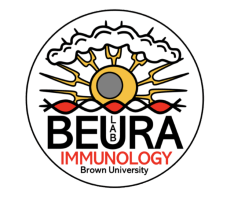 1. ANTIVIRAL RESIDENT MEMORY T CELL DIFFERENTIATION IN THE REPRODUCTIVE MUCOSA
1. ANTIVIRAL RESIDENT MEMORY T CELL DIFFERENTIATION IN THE REPRODUCTIVE MUCOSA
Resident memory T cells have recently emerged as a critical protective cell type against pathogens that target barrier mucosal organs. We are interested in understanding how these cells are established in mucosal organs, specifical
ly in the female reproductive tract. Using mouse models of viral infection, we aim to understand the role of local female reproductive tract derived signals in regulating resident memory T cells formation, maintenance and function. The findings will not only improve our basic understanding of T cell differentiation in the mucosae, but this work also has implications for T- cell based vaccine and therapy design against diseases including HIV and HSV.
2. T CELL IMMUNOMODULATION DURING PREGNANCY
Pregnancy is uniquely challenging to the mammalian immune system. The immune system undergoes a number of adaptation mechanisms to tolerate the semi-allogeneic fetus. An important component of this process is down modulation of local CD8 T cell effector function. Our goal is to understand the molecular regulation of this process. This information will be influential in treating pregnancy associated pathologies caused by T cell dysfunction.
3. IMPACT OF DIVERSE MICROBIAL EXPERIENCE ON T CELL MEMORY

The majority of basic T cell immune response studies in mouse models focus on a single infection in ultra-hygienically maintained specific pathogen free (SPF) animals. This is rarely the case in humans that are concurrently infected with a multitude of acute, chronic or latent microbes. We have developed a “dirty mice” model that uses cohousing of SPF mice with petstore mice to induce natural microbial transfer. The resulting mouse has diverse microbial experiences and this consequently better approximates the T cell differentiation status of adult humans. We aim to use this model to understand how the cumulative pathogenic experiences shape de novo mucosal T cell responses with a particular emphasis on various CD4 T cell lineages.
